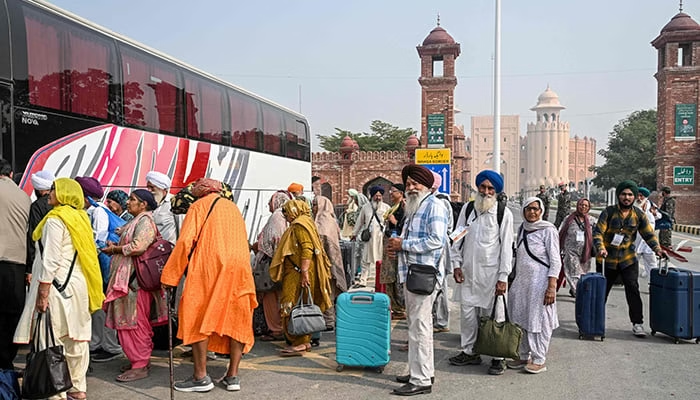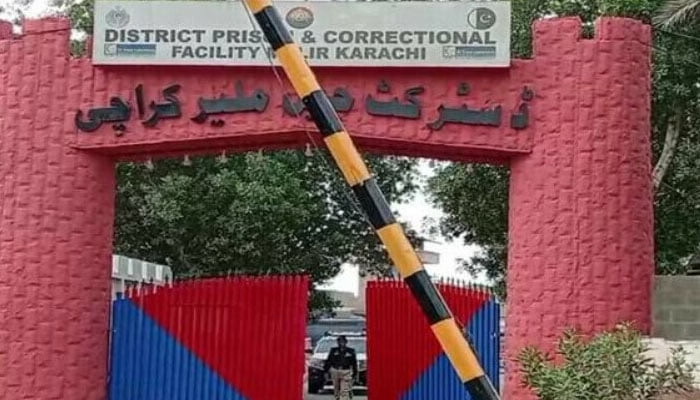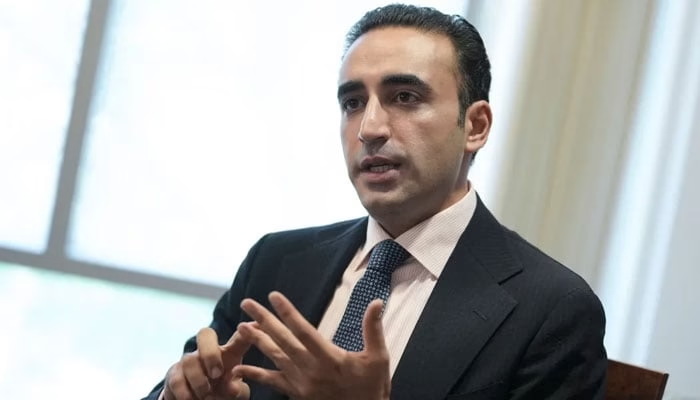Pakistan rejects Indian media claims regarding the alleged denial of entry to Hindu community members who wished to participate in the birth anniversary celebrations of Baba Guru Nanak Dev Ji. The controversy emerged after several Indian outlets reported that Pakistani authorities had restricted entry on religious grounds—a claim Pakistan strongly denies.
According to the Foreign Office, these allegations are misleading, baseless, and part of a broader pattern of portraying administrative processes as religious discrimination. The statement clarified that Pakistan rejects Indian media claims because they do not align with the documented facts surrounding the arrival of Sikh pilgrims from India for the annual celebrations held from November 4 to 13.
Pakistan’s Clarification on Visa and Entry Procedures
Foreign Office spokesperson Tahir Hussain Andrabi explained that Pakistan issued more than 2,400 visas to Sikh pilgrims for the sacred occasion, demonstrating its long-standing tradition of facilitating religious tourism. A total of 1,932 pilgrims successfully crossed the Attari-Wagah border on November 4 without any obstacles. This reinforces the position that Pakistan rejects Indian media claims about discriminatory treatment or religious bias.
The spokesperson further noted that the issue originated on the Indian side, where nearly 300 visa holders were prevented from crossing the border by Indian authorities themselves. Despite this, misleading narratives were circulated to shift responsibility onto Pakistan.
Administrative Procedures Misrepresented as Religious Restrictions
During the immigration process on the Pakistani side, only a very small number of individuals were not permitted to enter. Andrabi clarified that these individuals lacked complete documentation and were unable to meet standard immigration requirements. As per international norms, they were asked to return to the Indian side. There was no religious element in the decision, and Pakistan rejects Indian media claims that attempted to portray a routine administrative matter as a communal issue.
The Foreign Office reiterated that Pakistan has always welcomed pilgrims of all faiths to its religious sites. The country maintains a facilitative framework designed to ensure smooth access, especially during internationally significant religious festivals such as the birth anniversary of Guru Nanak.
Indian Narratives Criticised by Pakistan
Calling the reports “completely incorrect and mischievous,” the Foreign Office criticised the manner in which some sections of Indian media politicised the situation. By presenting an administrative action as a discriminatory act, these reports aimed to create unnecessary controversy. Once more, Pakistan rejects Indian media claims that attempt to undermine its record of religious openness and hospitality.
The spokesperson added that giving such matters a political or communal colour reflects the increasingly prejudiced environment within certain segments of the Indian government and media. Pakistan emphasised that the real issue lies in misinformation, not in any wrongdoing on its part.
Sikh Pilgrims Continue to Arrive Despite Border Tensions
Despite heightened tensions between Islamabad and New Delhi—especially after deadly clashes earlier this year—Pakistan welcomed dozens of Sikh pilgrims through the Wagah-Attari border. More than 2,100 pilgrims were granted visas to attend the 10-day festival marking the 556th birth anniversary of Guru Nanak, reaffirming Pakistan’s commitment to religious harmony.
Since the border saw closures earlier due to conflicts, the arrival of these pilgrims is significant. It reflects Pakistan’s continued willingness to uphold bilateral agreements involving religious tourism, even during periods of strained relations.
The Kartarpur Corridor, which provides visa-free access to Gurdwara Darbar Sahib, has remained closed due to ongoing tensions. Even so, Pakistan continues to express its readiness to facilitate pilgrimages whenever conditions allow.
A Pattern of Misreporting?
This incident adds to a series of episodes in which Indian media narratives have attempted to portray Pakistan in a negative light. By misrepresenting administrative steps as religious discrimination, these reports mislead the public and fuel unnecessary mistrust. As official records show, Pakistan rejects Indian media claims because they fundamentally contradict the transparent procedures carried out at the border.
Conclusion
The latest controversy serves as a reminder of the importance of factual reporting, especially in matters that involve religious sentiments and cross-border relations. Pakistan’s clear stance is that it remains committed to welcoming pilgrims of all faiths and ensuring ease of access to its religious sites. By issuing thousands of visas and facilitating smooth entry for nearly two thousand pilgrims, Pakistan’s actions directly contradict the allegations circulating in Indian media.
For now, Pakistan rejects Indian media claims, calling for responsible journalism and urging that sensitive matters not be misused for political narratives.



